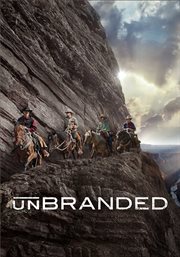Review by Choice Review
Writer Grace seeks to motivate readers to look beyond this book to further examine water resource issues west of the Mississippi. He implicitly wants people to adopt his attitudes toward these issues. Accordingly, he has cobbled together an uneven presentation colored by his own opinions and rhetoric. The author provides a historical overview of water use from the days of early exploration of the area to the present, asserting that the region should never have been exploited so intensely by politicians, corporate agriculture, and hydropower factions. He espouses the largely ignored ideas of explorer John Wesley Powell, who advocated that the arid West should be settled sparsely and that local residents should make water allocation decisions. Grace did not set his book into any particular genre, and his voice wavers as he invokes scholarly, journalistic, literary, and cultural approaches. He cherry-picks the issues that interest him. His coverage of Native American water rights is spotty, the groundwater chapter is superficial, and groundwater is barely mentioned elsewhere. His florid descriptions of landscapes are excessive: "Seussian towers stained pink and orange wore drooping hats of caprock." Grace excoriates the people and entities on which he lays blame, such as water-hungry Los Angeles, "the water whore of the West." Summing Up: Not recommended. L. S. Zipp formerly, State University of New York College at Geneseo
Copyright American Library Association, used with permission.
Review by Kirkus Book Review
A concerned, observant "citizen of the West" spins tales of our chronic mismanagement of the only natural resource for which there's no alternative: water. The American West's relentless aridity doomed civilizations for centuries. Nevertheless, thanks to gold fever, Manifest Destiny and the railroads, the Great American Desert began filling up with people, entirely, it seems, without regard for limits to expansion imposed by the lack of precipitation. Today, we know better than to think "rain follows the plow," but we don't appear even close to developing a water sustainability program to keep cities like Las Vegas, Denver and Phoenix from drying up. Claiming no special expertise--indeed, the West's water story cuts across too many disciplines for even specialists to wholly absorb--Grace (Shanghai: Life, Love and Infrastructure in China's City of the Future, 2010, etc.) has nevertheless traveled widely and read broadly. He effectively, even humorously at times, captures the highlights of the West's liquid history: the engineering wonders (and unintentional consequences) of New Dealera dam projects; the tortuous web of law, regulations, treaties and compacts that govern Western water rights; and the political, bureaucratic and industrial power grabs that have accompanied all reclamation projects. The author covers a lot of territory: geologist John Wesley Powell's prescient observations and recommendations for watershed communities; the hydro-skullduggery that accounts for the city of Los Angeles; the winding tale of the Colorado, "the world's most heavily litigated river"; the ongoing depletion of the Ogallala Aquifer; the rise and demise of the Bureau of Reclamation; the industrial and agricultural tainting of our water; and our meager efforts to conserve or create more by desalination and cloud seeding. Westerners long accustomed to the region's water scarcity will discover nothing new here, but Grace's dispatches will likely strike those east of the 100th meridian as from another country. Though squarely on the side of environmental prudence, Grace is neither preachy nor accusatory in his descriptions of an impending tragedy and the need for action.]] Copyright Kirkus Reviews, used with permission.
Copyright (c) Kirkus Reviews, used with permission.

